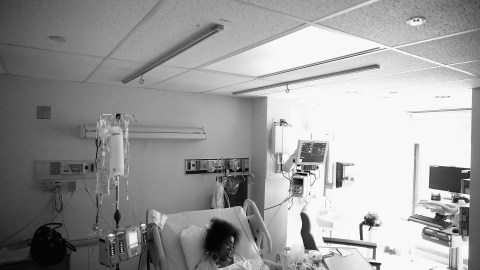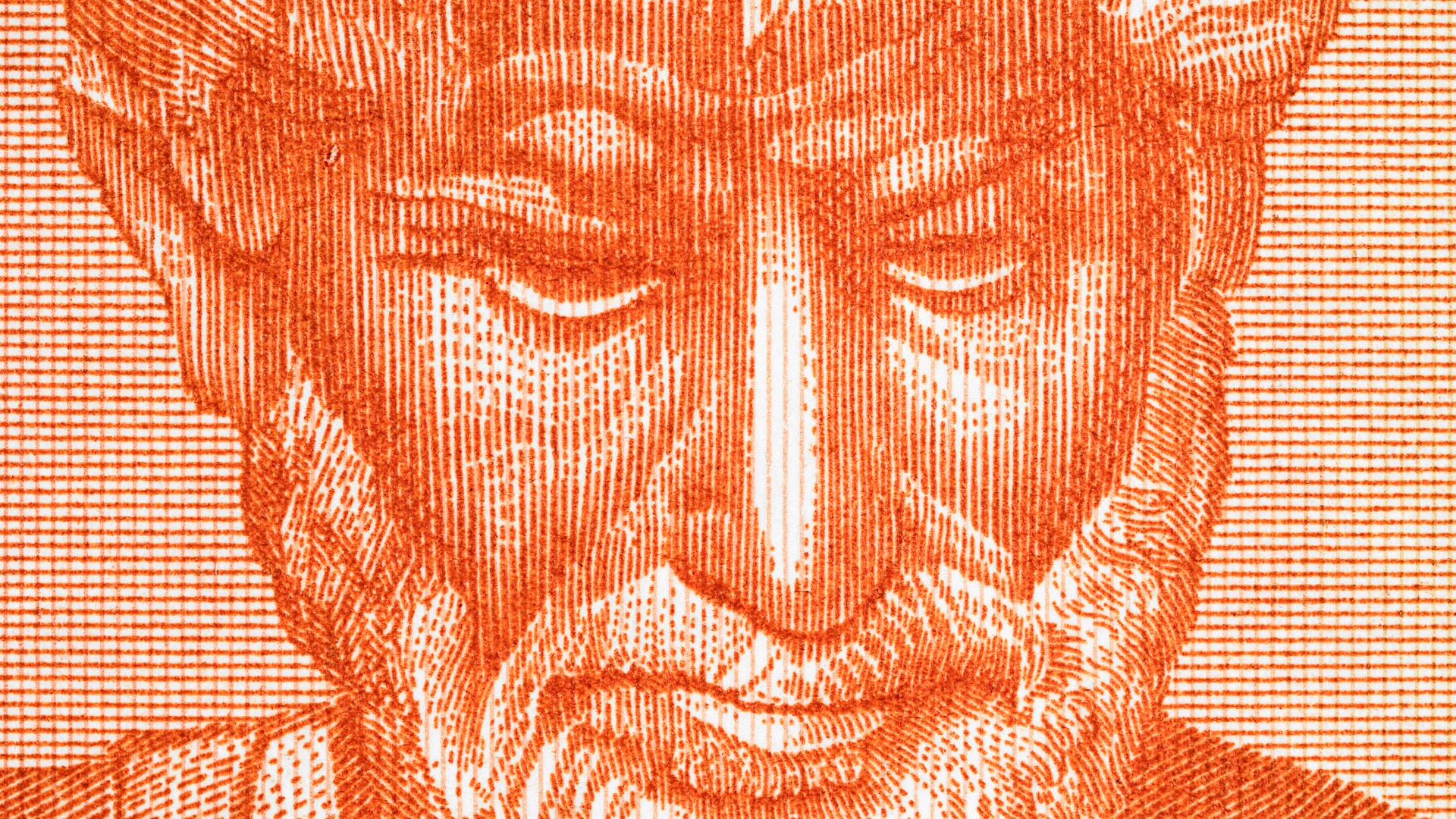Can We Learn to Die Better?

This much we know: the American prison system is broken.
Strike that. Our prisons work as intended: for profit. Last week news broke in Mississippi that job cuts and deficits are inevitable. As long as prisoners keep flooding in, no problem exists. Problem is, there’s not as many as regional prisons need to thrive.
The country has caught onto the overt racism of our government’s drug laws. Reform is slowly trudging along, however. In its wake another reform—of the prisoner—is also being considered. Why are we locking up so many Americans? How are they being treated? Is solitary confinement any way to treat anyone? Is any of this humane?
In her recent book, The Good Death: An Exploration of Dying in America, Ann Neumann tackles an issue Americans have particular challenges facing: death. A culture obsessed with youth and individualism generally puts off existential grief until it’s too late, turning a blind eye to the process. While the entirety of this beautiful book confronts the reader in a nuanced, heartwarming tone, her chapter on end-of-life care for prisoners is especially touching—and important.
I grew up near a prison in central New Jersey. In fact, I visited it often; my mother worked in the commissary. You don’t see much of it from the road, tucked away as it is in the woods of North Brunswick, buffered by Farrington Lake and Route 130. But you feel its presence from afar, which is generally how we treat inmates: we know they exist, just don’t make me think too hard about them and please God, don’t let them affect my life.
America is terrible at many things, health care one of the most prominent. One-sixth of our economy, $2.7 trillion, is spent on it, $800 billion on inefficient care—Neumann cites a journalist’s father’s final ten days costing $323,658. We spend a ton on health yet exhibit so little of it. Our health-care system, like our prison system, first and foremost operates on the principles of capitalism, which leaves very little room for our desires and ambitions.
We expect people to get better from one, not the other. Neumann writes,
We believe in the healing power of hospitals, often wrongly; we no longer, if we ever did, believe in the healing power of prisons.
The stress that prisoners endure on a daily basis, Neumann writes, can add over a decade to the weight they carry on their shoulders. Compromised immune functioning and living in constant fight-flight-freeze mode make health care especially challenging. Likewise we send seniors to age-restricted homes, many operating under the same capitalistic principles, yet somehow expect different results. Or we just don’t care, as long as they’re out of sight.
The stated goal of our prison system is reform, but when the state pays regional (and increasingly, privatized) prisons an average of $34,000 per prisoner per year, the money is just too good to pass up. Elderly prisoners cost up to twice that amount: currently we spend $16 billion on prisoners above the age of fifty.
This collides with the overarching narrative of Neumann’s book. We don’t know how to die. One frightening statistic reveals a survey of two thousand doctors. The majority of these professionals hope to die in hospice or palliative care, yet many of their patients die traumatically, hooked up to machines prolonging the length of their life while doing nothing in regards to the quality of their death. For over two years I worked in an emergency room watching such extreme measures. It takes a toll on everyone involved.
When my grandmother died a number of years ago, workers at her retirement home requested that family members no longer visit. Suffering from dementia, she apparently became too ‘worked up’ after my father or her other children stopped by. The staff preferred to keep her sedated and quiet, which is exactly how she died, unaware of where or who she was in a room far away from where she spent most of her life. Like inmates, many seniors are prisoners of an indifferent system.
Neumann, a visiting scholar at NYU’s The Center for Religion and Media, began working on The Good Death after failing to honor her father’s last wish: to die at home. While circumstances were beyond her control, she writes eloquently about the despair one feels watching a loved one disappear into nothingness.
She argues convincingly for the growing assisted suicide—or, as advocates call it, aid in dying—movement, a topic I recently covered in this column. She also surveys the frightening power that Catholic institutions maintain over our health-care system, given the church’s vast network of hospitals and insurers that can legally deny you (or at least fail to inform you about) what does not fit into its belief system.
What makes this book so readable is Neumann’s honesty. The reality is that none of us really know how to die. We hope to go quietly in the night, a dream unrealized by the majority. As stated, we’ve become experts in prolonging length, yet often at the expense of quality. I’m not convinced this is any way to die at all.
Neumann recognizes the limits of our understanding. In perhaps the book’s most reflective passage, she reflects on why she connected with so many hospice patients, yet was unable to reply to the one man she visited in a prison hospice. It’s a stark reminder of the limits of our capacities.
Compassion in practice, when I do feel it, is fickle, too. I’ve cared about some hospice patients more than others. I’ve taken care of some loved ones more than others. And I’ve wrung my hands in guilt for the disparities. It’s easier to care for people when you trust them, but also when you know you have power over them. When you know they need you.
There’s a popular mantra floating around yoga studios that translates to, ‘may all beings everywhere be happy and free.’ I never really felt comfortable chanting it, because I know that while in the abstract it makes the student feel good, in reality it’s simply not how humans, with our tribal in-group mentalities and encoded biases, actually work in practice. Better it is to face life, and even death, as it is, instead of fooling ourselves into believing all sorts of tales. Perhaps then we can make progress.
—
Image: Chip Somodevilla / Getty Images
Derek Beres is a Los-Angeles based author, music producer, and yoga/fitness instructor at Equinox Fitness. Stay in touch @derekberes.





